New Parliamentary Budget Office Bill – attempting to outsource Parliamentary functions to a Corporate Body (MCC Private Company)
Posted on May 19th, 2023
Shenali D Waduge

When Sri Lanka in view of its geopolitical position is vulnerable to a plethora of external destabilizing attacks (regime change, economic subjugation, cultural genocide, foreign-funded ethno-religious terrorism / diluting of heritage values, infiltration into Public Sector apparatus riding on accountability” trojan horse) Sri Lankans need to look at every proposal with caution. Anyone reading the draft Bill to set up a Parliamentary Budget Office should realize that the attempt is to outsource parliamentary functions to a corporate body. Anyone who followed the Millennium Challenge Corporation documents would see sharp resemblances.
The MCC presented as a gift” immediately after Easter Sunday in April 2019 was a meagre $480m over 5 years to be given NOT to the GOSL but to a Private Company set up by the GoSL.
- GOSL signs MCC & passes in Parliament (sign first passing second – making MCC a domestic law though MCC agreement is valid only for 5 years). With that shelved, is the PBO an alternative?
- GOSL establishes an accountable entity”- a Private Company – MCA Sri Lanka Private Limited (Primary Agent of GoSL to legislate on behalf of Sri Lanka ‘ AGENT of the Sri Lankan Government ‘)
- Only after above, the disbursement of money will take place to a private bank & not to the Sri Lankan Treasury (just like the current Bill)
Refer: MCC Agreement / Program Implementation Agreement / Annex 1-34 of MCC Annex IV under Independence & Autonomy
- Does Sri Lanka’s Constitution permit a Govt elected only for a term to hand over land & interests of people to a company who is agent of the $480m
- This Company – MCA Sri Lanka is outsourced Govts role & able to enter undisclosed agreements (just like the current Bill)
- Given that there was objection to MCC Private Company – is the Govt attempting to take a different path to achieve same objective via the PBO Bill claiming it is for accounting purposes but given the objectives under the MCC Private Company?
- Sri Lanka’s legal luminaries must question if both are a violation of Article 76 of Sri Lanka’s Constitution
Parliament shall not abdicate or in any manner alienate its legislative power and shall not set up any authority with any legislative power” (golden words – is this why there are attempts to change the Constitution)
- The present Bill omits the international law” that was applicable to US & US citizens who were given immunity, however instead the Bill gives the Parliamentary Budgetary Office immunity.
- The present Bill also commits an entire nation to ‘unknown agreements’ which can be used as well
- MCC Company Board comprised GOSL Secretaries / PBO is basically providing scope for same
- GoSL undertook responsibility & accountancyity for MCA-SL private company (Section 3.2) – the PBO which also sets up a virtual separate entity under a CEO is about to do the same
- MCA-Sri Lanka could enter into contracts, sue & be sued, hold MCC funding in a private bank – just like the present Bill
- MCA-Sri Lanka private company was to get access to all Sri Lanka’s state records (just like the present Bill)
- Why would the GoSL wish to pass on the work that the Auditor General & Elections Commissioner can do within their current capacity to a private body? This is the golden question.
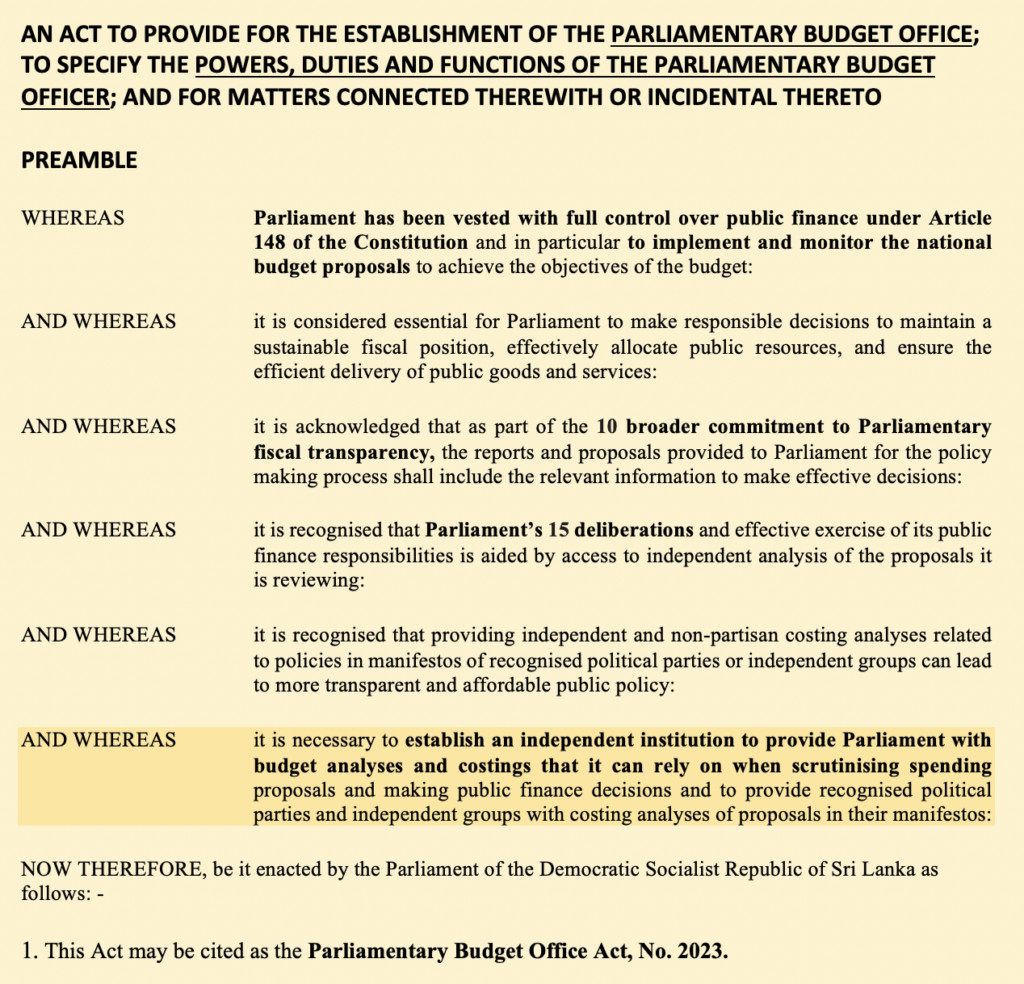
Are the above aspired objectives not covered or cannot be covered under existing Article 148 of the Constitution?
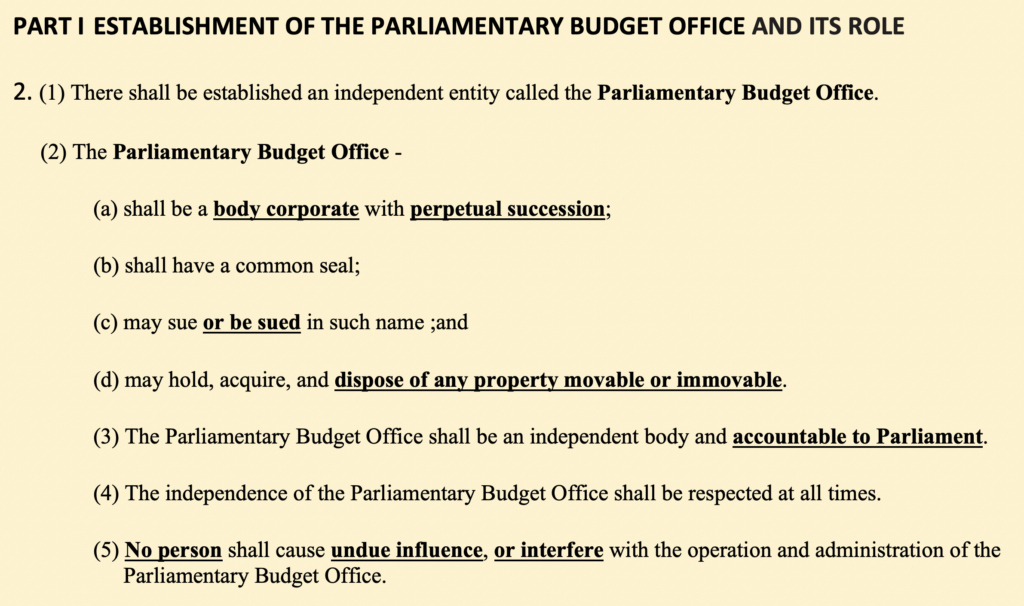
- Why would a Parliamentary Budget Office become a body corporate” exactly what is a body corporate” & what is aspired by perpetual succession”.
- Why would a Parliamentary Budget Office wish to be sued”.
- If the PBO is accountable to Parliament” how can it be independent” from Parliament?
- What is implied by independence of PBO”
- Who is implied as no person” influencing or interfering
- What is the undue influence or interference” being implied?

- Doesn’t Article 148 provide provision related to public finance?
- What is this independent, non-partisan analysis related to the budget’ being referred?

- The PBO seeks to provide services to 4 segments – a Committee in Parliament / a MP / a recognized political party or independent group or to Parliament
- However, it is only fair to question why these aspects cannot be fulfilled within the existing apparatus?

- Why should the Constitutional Council recommend to the President to appoint a Parliamentary Budget officer to be a CEO?
- What is the purpose to be appointing a private role to a public service?

- Does it mean that a person with at least 15 years of experience in government budgeting has to APPLY to the Constitutional Council who then recommends to the President to be appointed
- Who is he reporting to?
- Who can fire him?
- This question emerged when the IGP could not be sacked as there was no provision in the independent commission to sack him

- Is this appointment to be immediately after the election of a government?

- Is it the Constitutional Council who decides to extend the term of the PBO?
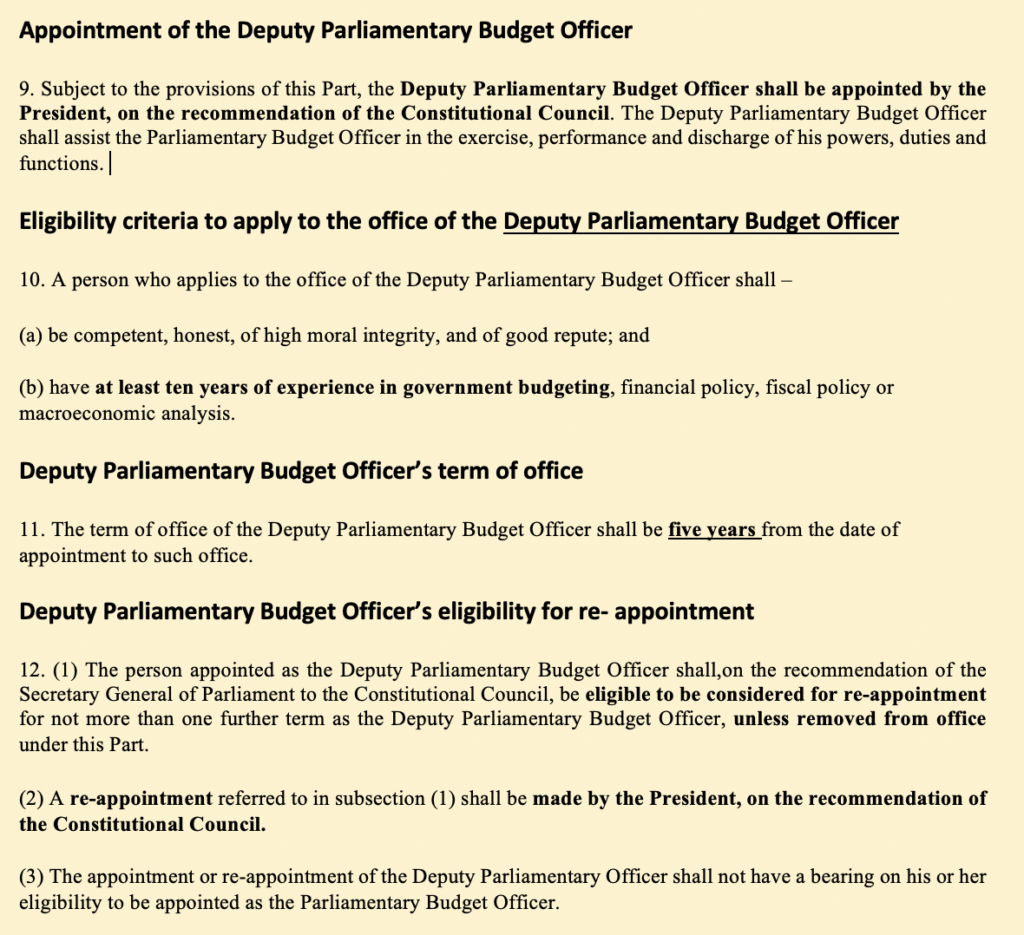
- Why is there a need for a Deputy Parliamentary Officer, who is recommended by the Constitutional Council, appointed by the President & eligible to become the PBO?
- How can he be sacked?

- Is this to encourage non-public servants or public servants now working in international or private roles to apply?
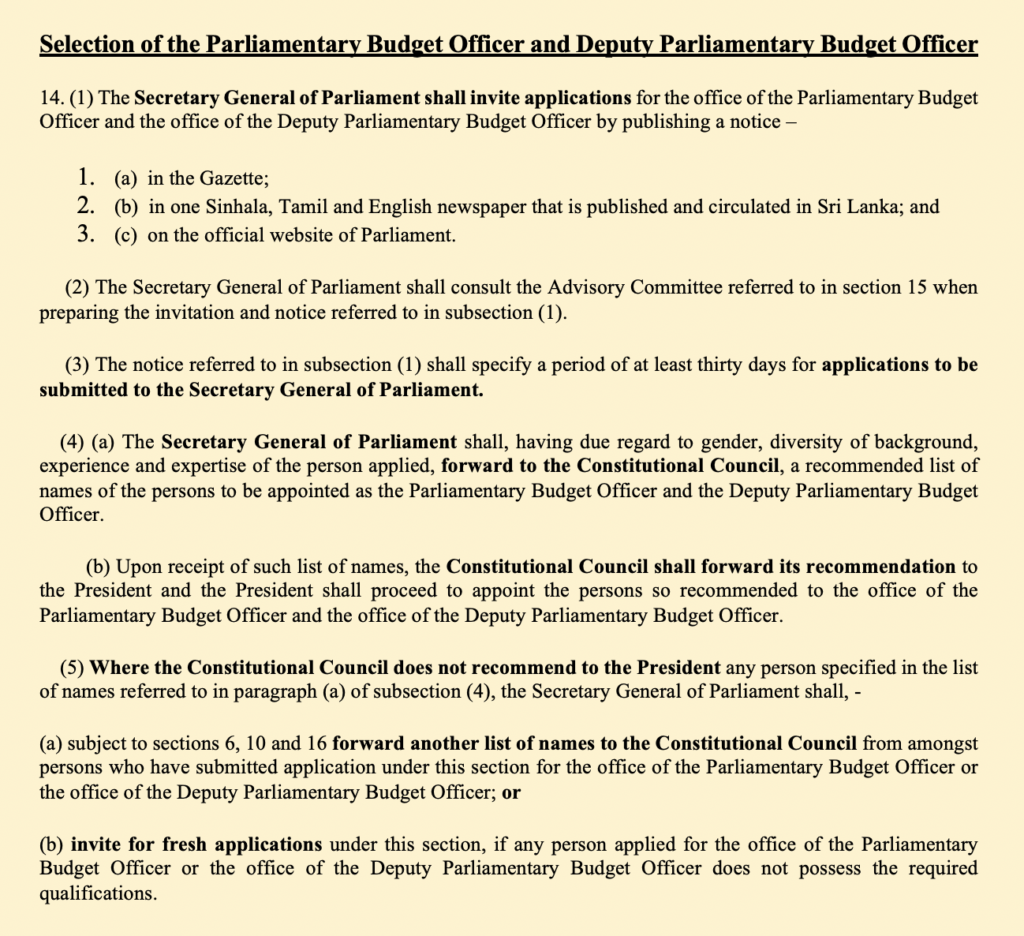
- What a merry-go-round this is going to be – if the Constitutional Council does not accept the 1st list sent by the Secretary General of Parliament, a 2nd list is sent or fresh applications are called

- The Secretary General of Parliament selects the PBO & Deputy PBO with assistance from 2 new roles (Chair of the Committee on Public Finance & Chair of the Committee of Ways & Means) & Deputy Speaker of Parliament
- Ways & Means Committee” originated in the UK though abolished in 1967 yet the Chairman’s role remains with Deputy Function as Chairman (Chairman & 2 Deputies are voted by ballot in Parliament)
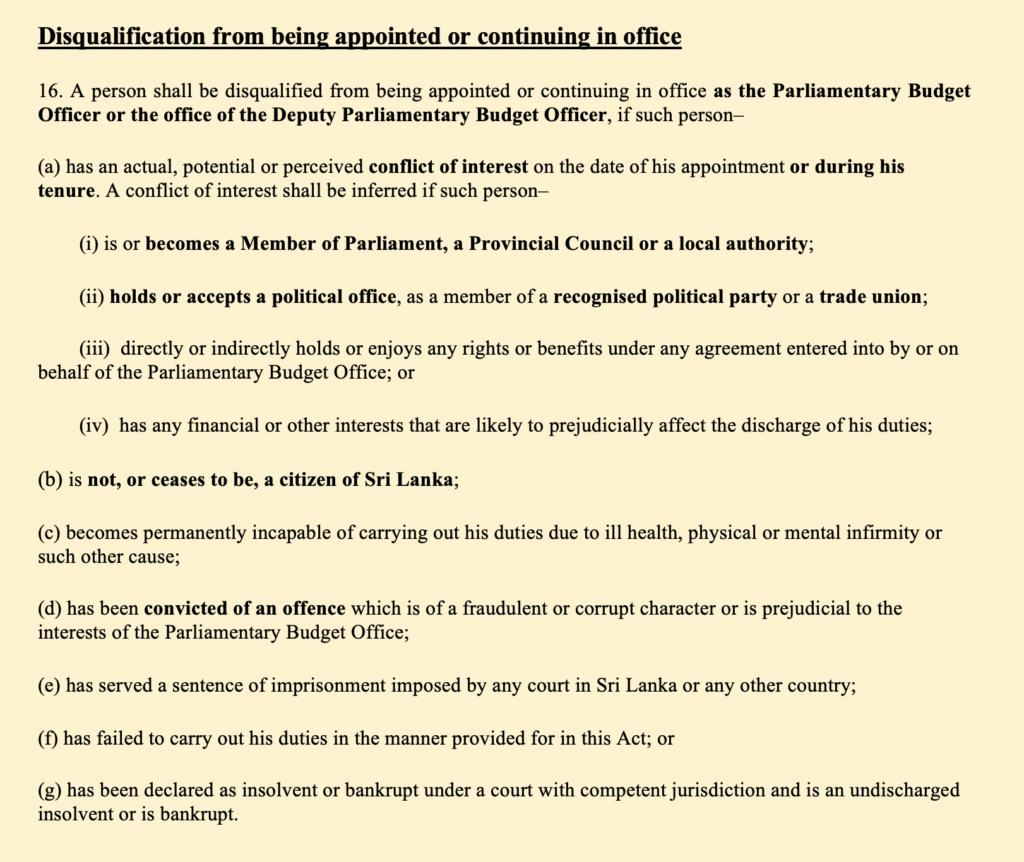
- If the PBO or Deputy PBO cannot be a MP, or even from PC or Local Authority or from a political party or trade union – does this indirectly imply that the 2 positions are only for non-state sector persons?
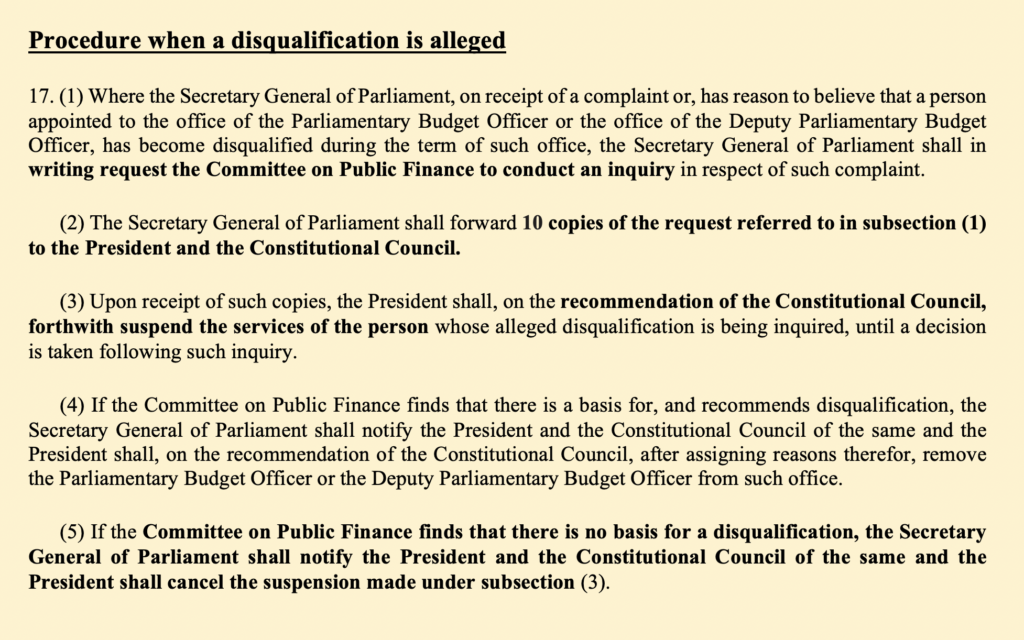
- Who can send complaints is not addressed
- So the Secretary General of Parliament forwards complaint to the Committee on Public Finance (CPF) with copies to the CC. the CPF conducts an inquiry.
- Why should the Executive President of Sri Lanka function to the dictates of the CC?
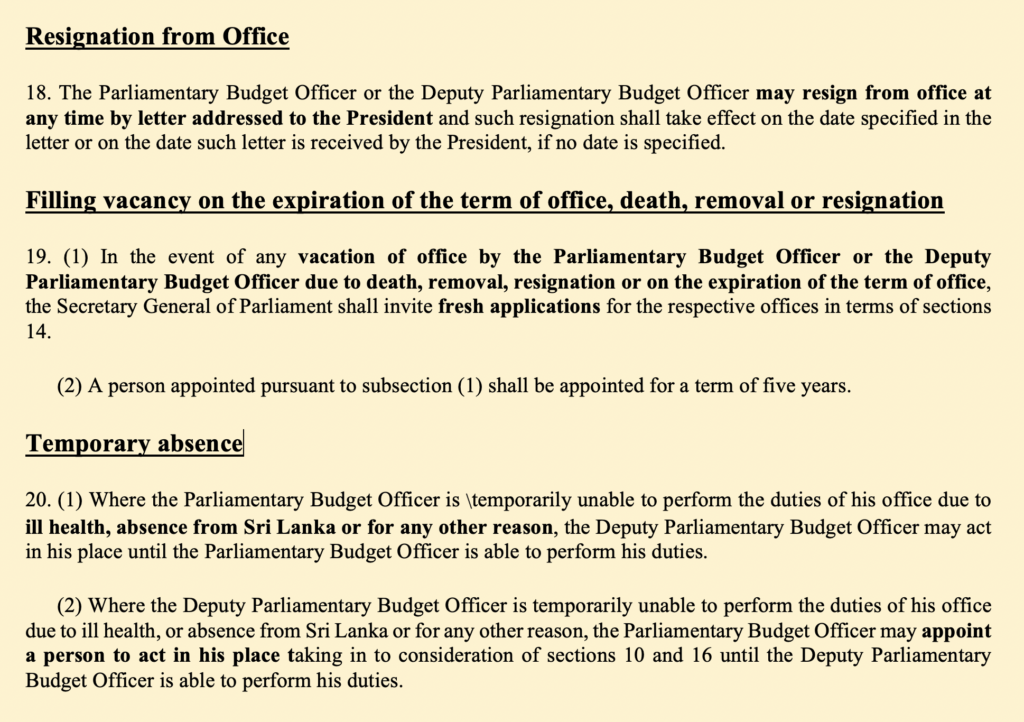
- Can this role not be undertaken within the present existing system?
- Who can replace the Deputy PBO in the event he is unable to perform duties.

- If PBO is accountable to Parliament & remuneration is determined by Parliament, why should it be called a body corporate”.
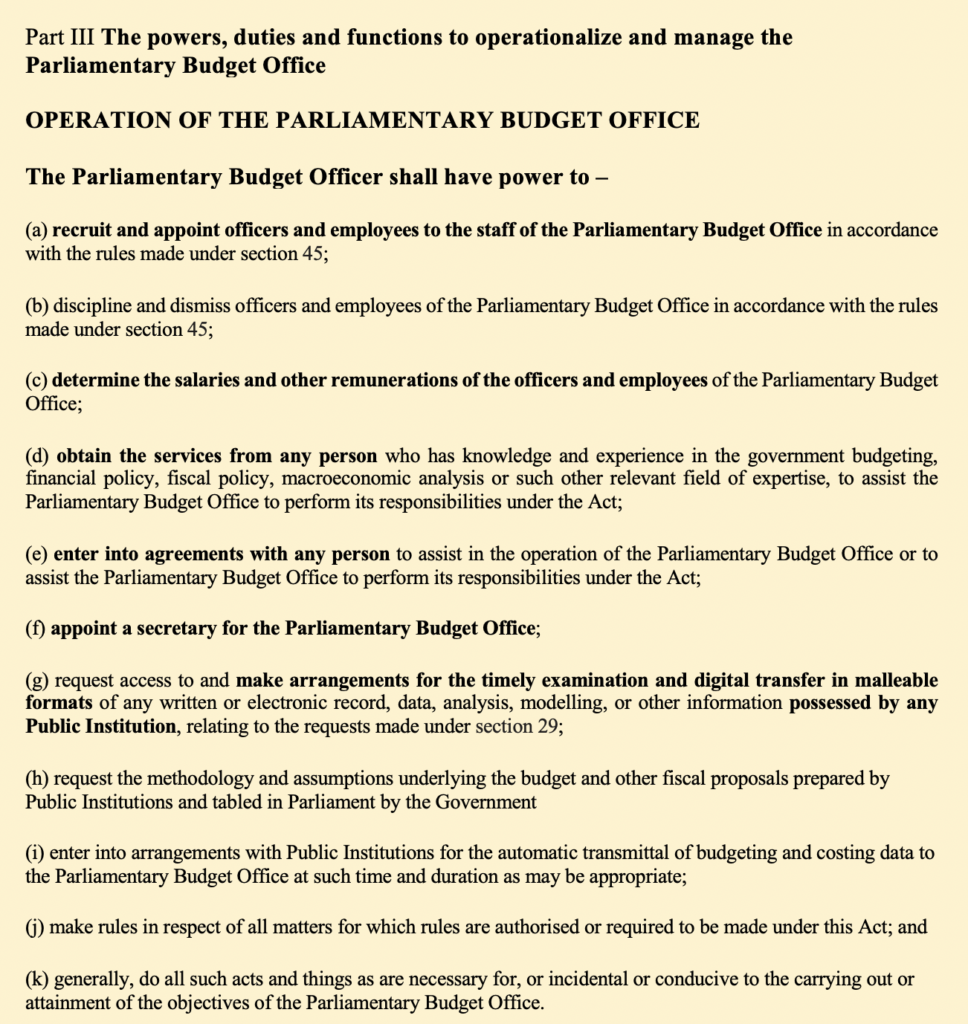
- Is this recruitment from within State service & as staff of state service?
- What is implied as obtain services from any person” does this include foreign consultants?
- What is implied by enter into agreements with any person” what type of agreements & who are the persons & is this without informing Parliament?
- Why the emphasis on ‘digital transfer in mailable formats” … information possessed by any State Institution – is this to be sent abroad?
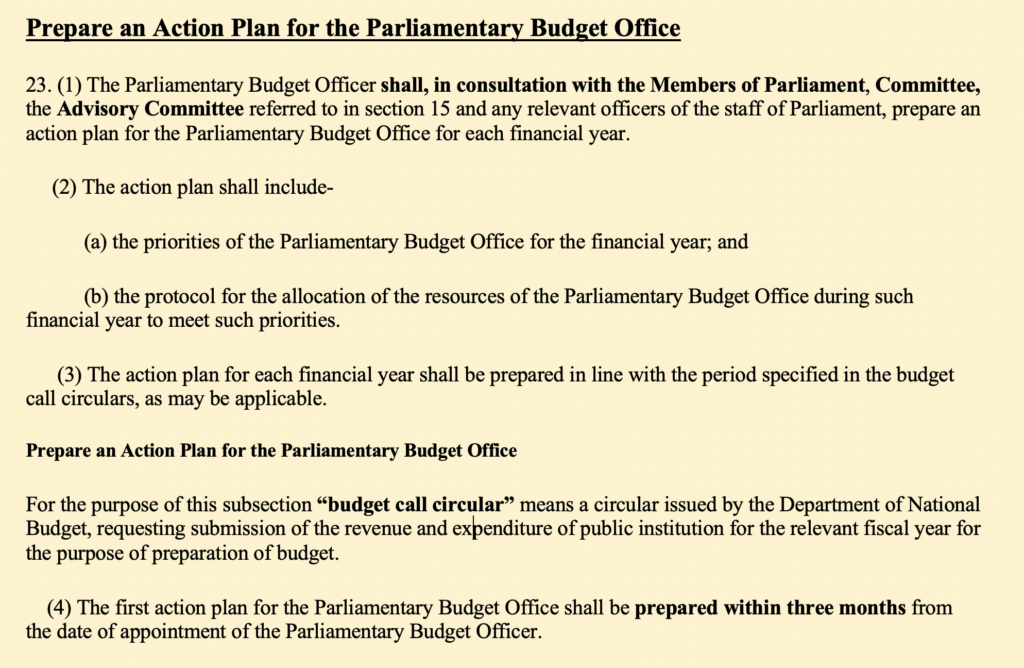
- Again, why can’t these services be done within the existing set up?
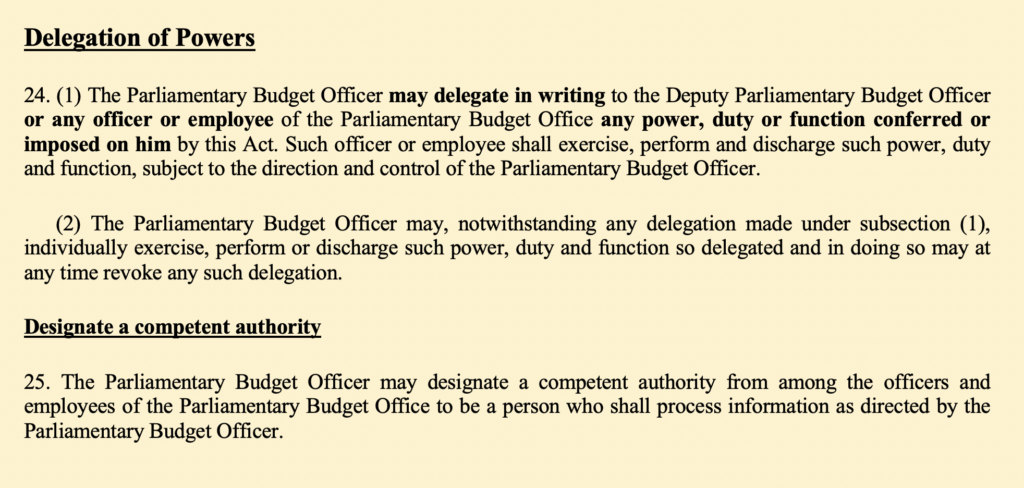
- What is the reason for this clause?
- When a person is appointed for a specific task, why should that task need to be delegated to others. If so, it may as well be included in their job profile!
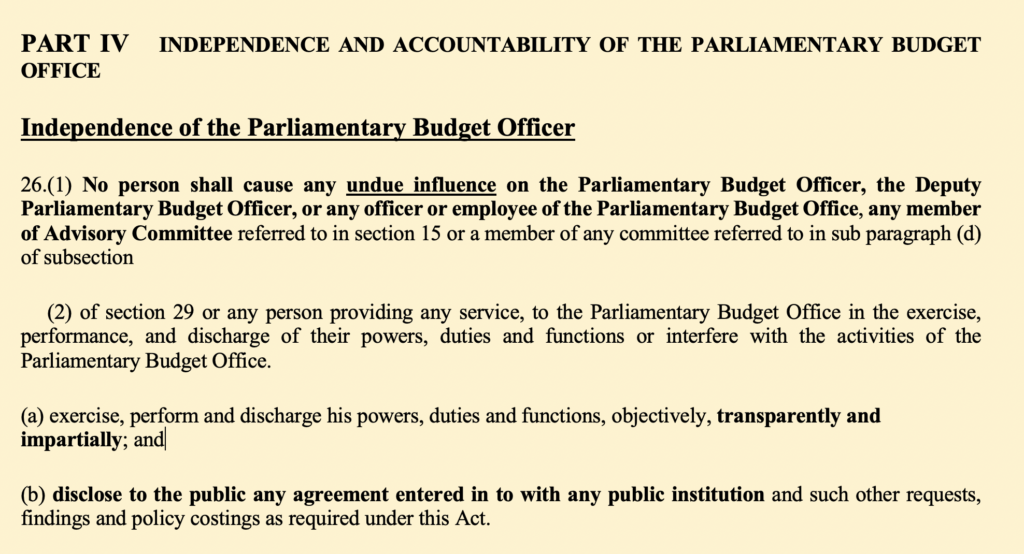
- What is implied as undue influence”
- How can there be transparency if 26 (2) (b) requires not to ‘disclose to the public any agreement entered into with any public institution” – what kind of secrecy is the PBO office expected to carry out under the guise of ‘independent’ entity?
- Let it not be forgotten that if the Parliament is accountable to the people, and the PBO is accountable to Parliament, then the PBO has to also be accountable to the People.
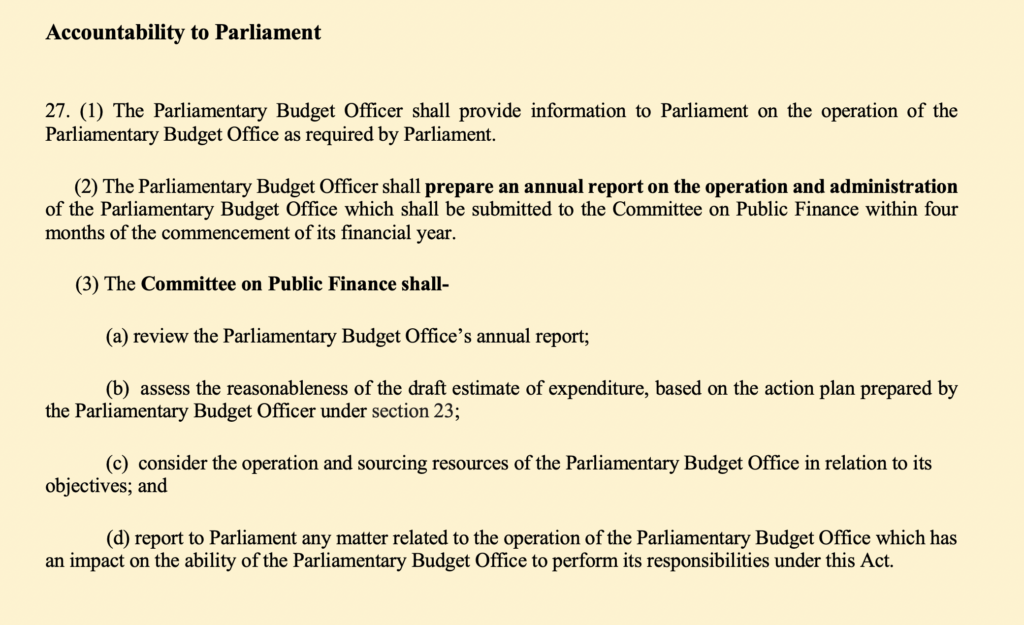
- There is little magic being done under this role & begs to question why it cannot be done in the existing set up?
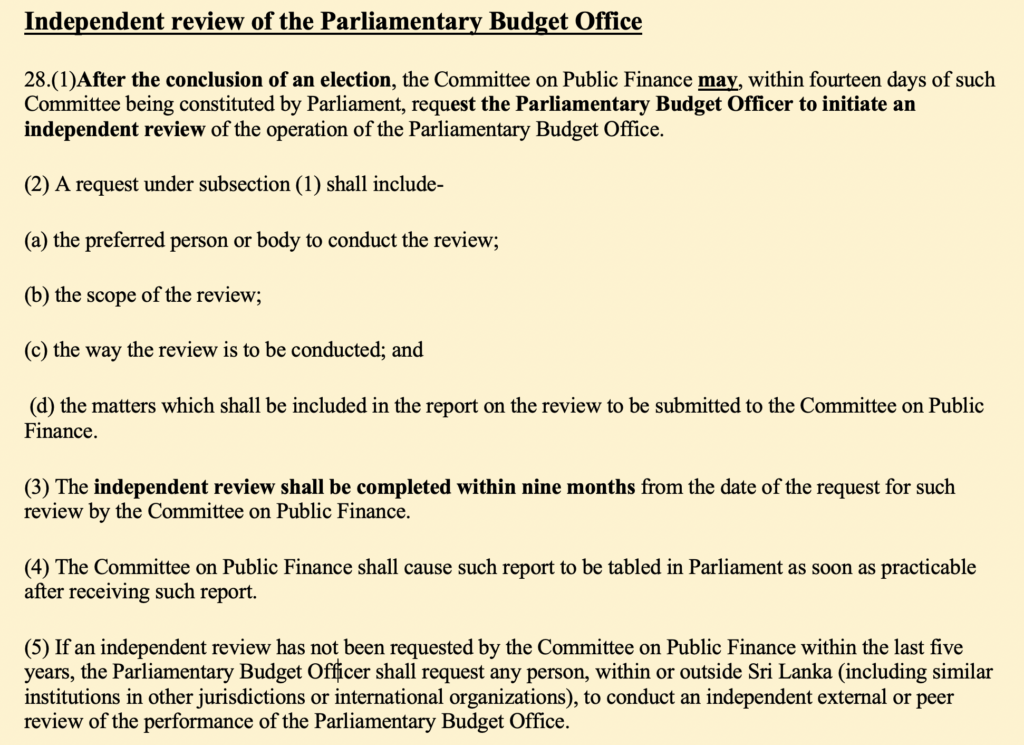
- Who is going to be funding these independent” inquiries some involving foreign as well, while keeping details secret from the Public?
- Exactly what is the purpose of these inquiries?
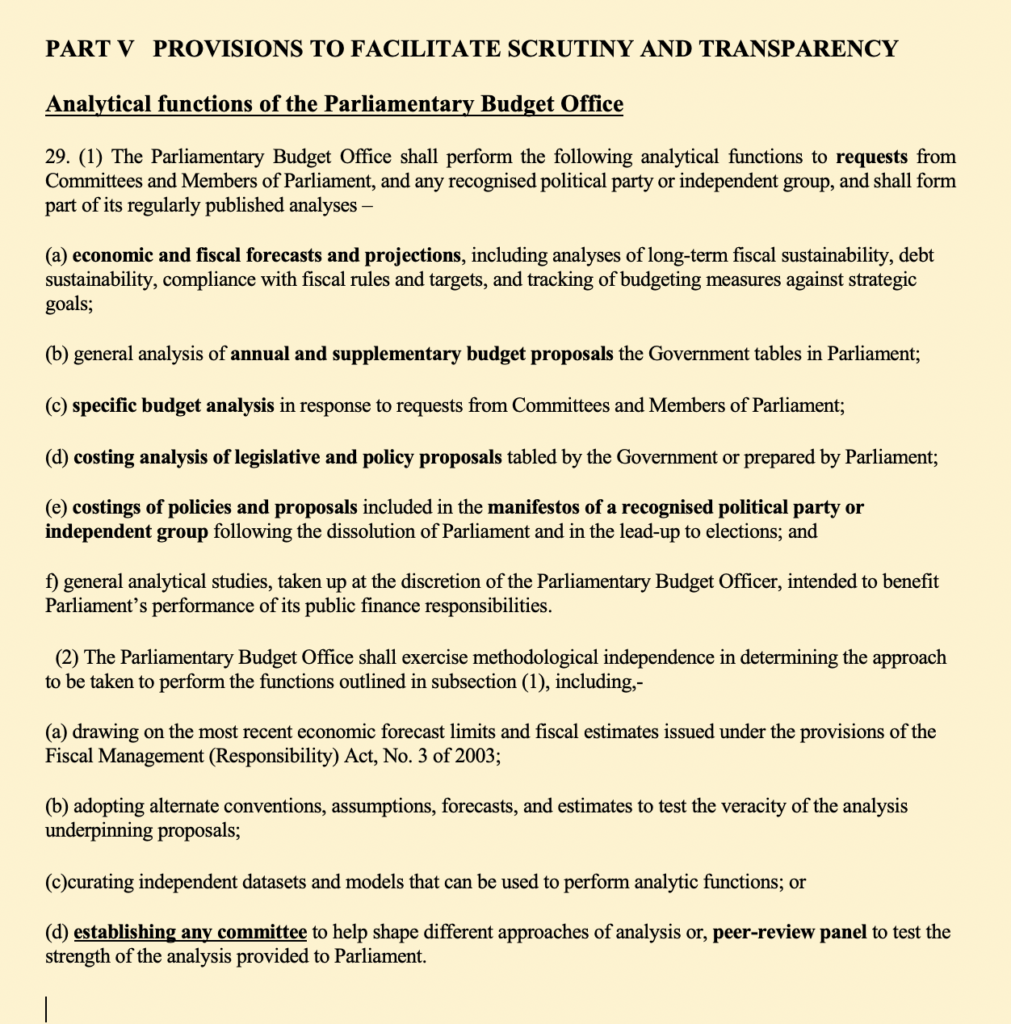
- What is going to be the outcome of all this analysis & who is going to be funding it?
- When political parties are not legally registered, how can their manifestos be questioned?
- Doesn’t the Election Commission have powers to check the funding to parties?
- What is the role of the Auditor General as against this new entity?
- Is there not likely to be not only conflict of interest but overlapping of work & roles too
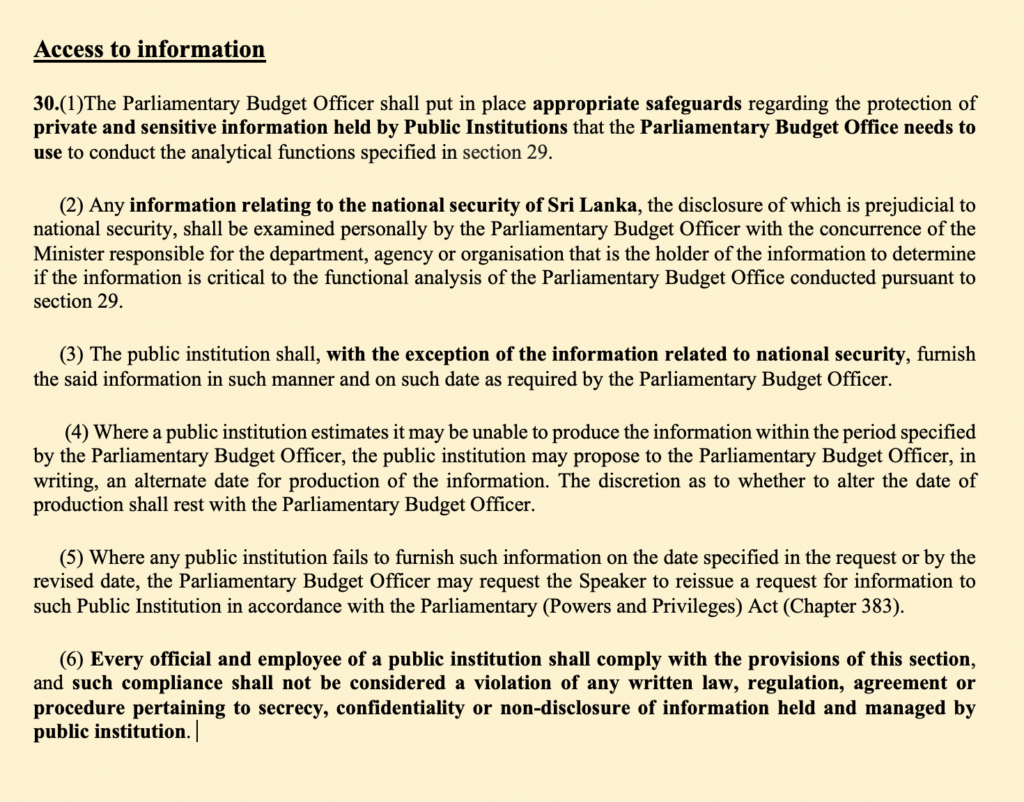
- What are the appropriate safeguards” the PBO can put in place?
- Why would PBO wish to be privy to ‘national security information’?
- Why are state sector employees being bound to provide all info to this new Office?
- What is the danger of giving information when this ‘body corporate’ is also given scope for ‘perpetual succession’ and can even be ‘sued’ as well as able to ‘dispose any property movable or immovable’ belonging to the state of Sri Lanka?
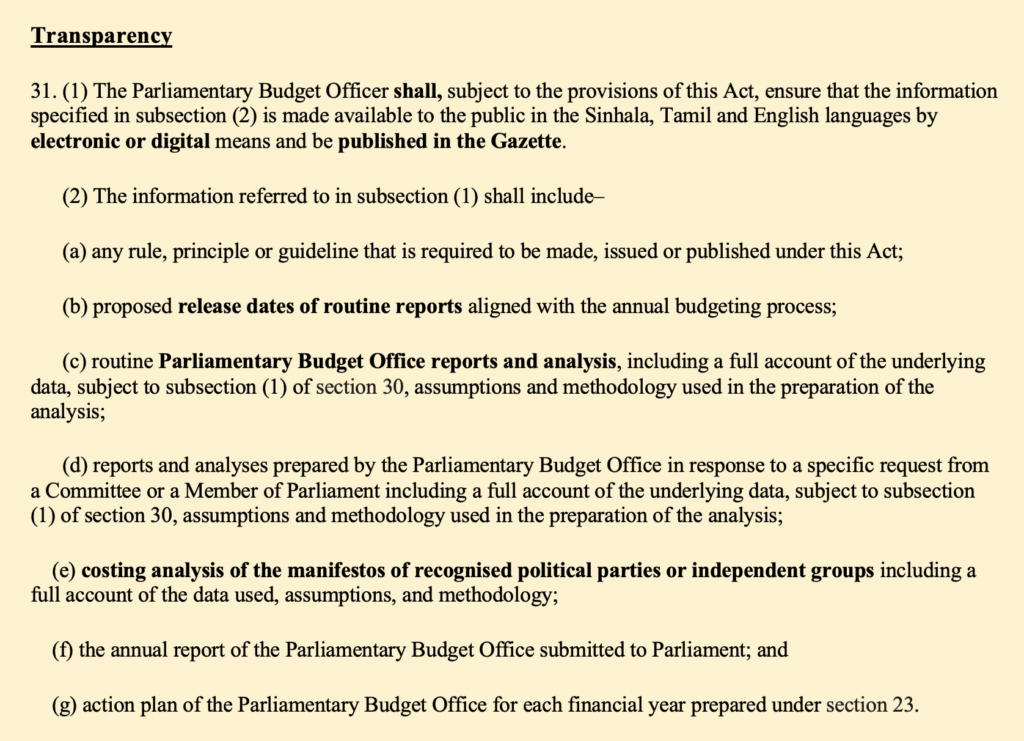
- What is the sudden hurry to analyze party manifestos which can easily be monitored by the Election Commission

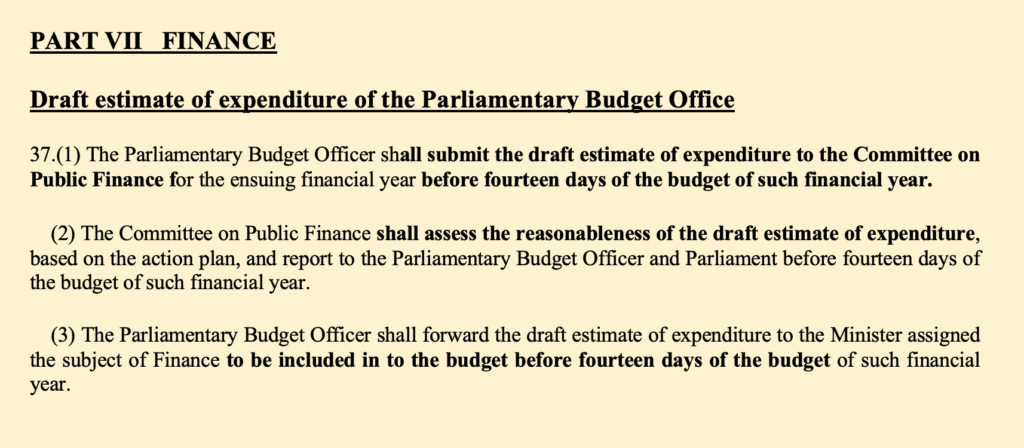
- This leaves just 14 days to scrutinize what the PBO has presented
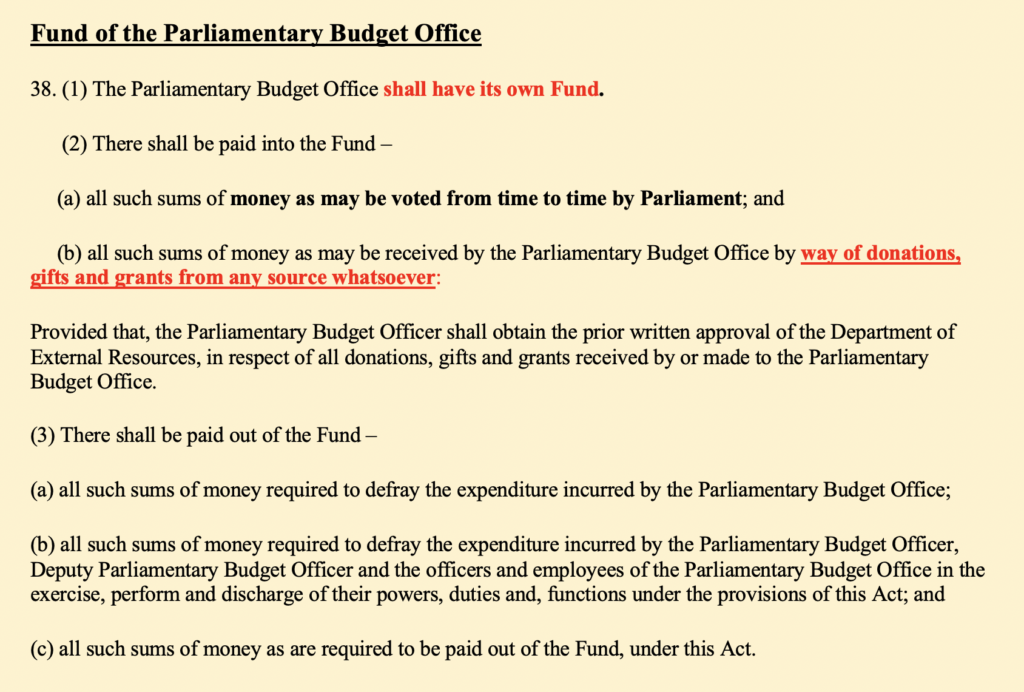
- It is now clear that the PBO is to run independently” with provision for perpetual succession” being funded by donations, gifts & grants” and we can guess where these will come from & how far such will undermine the sovereignty of Sri Lanka as PBO is accessing information of all State institutes & having their data in a format that can be emailed too!

- Does any bank” imply that PBO can hold account in private banks or even international banks?
- This is one key aspect of the MCC corporate body
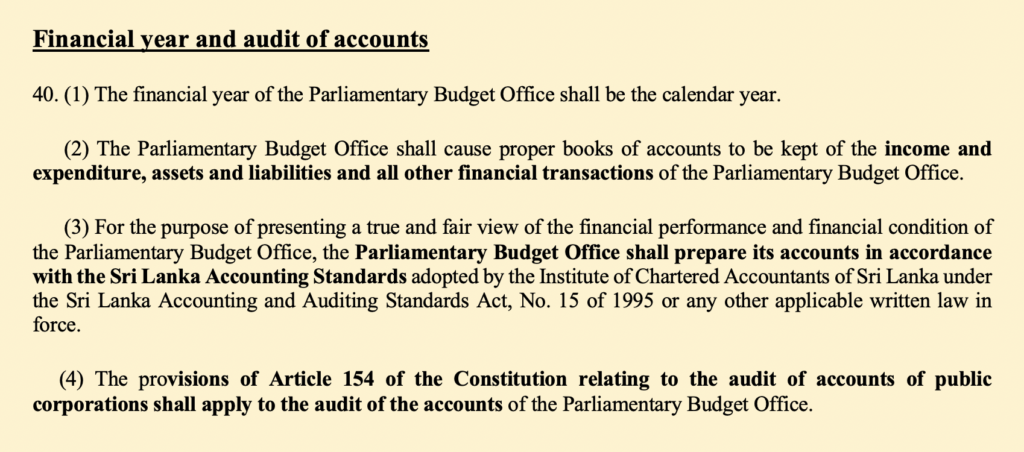
- What is the role of the Auditor General against this new Office with a vague set of ‘independence’ measures?
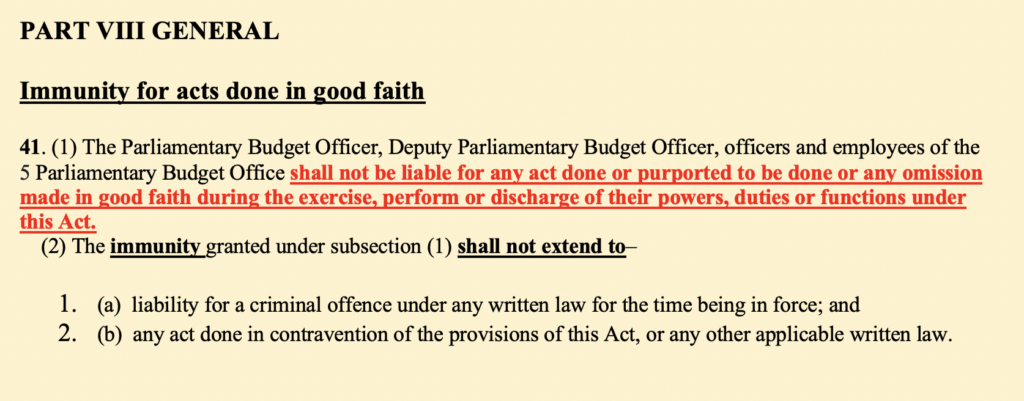
- If this newly formed office is only collating statistics and compiling reports, why should they be granted immunity?
- Also all Public Servants even under Scheduled Institution are prone to action against corruption.

- If they are public servants why should they be immune?
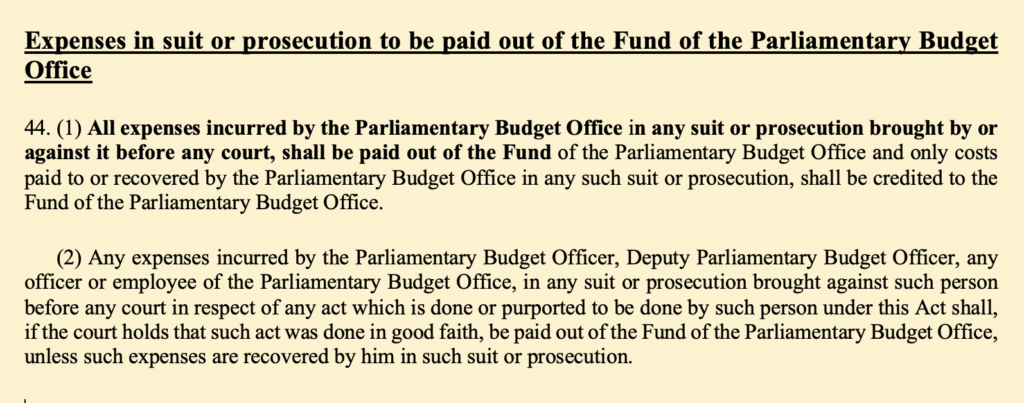
- Is this not cause for concern given that donations, grants & gifts from unknown sources are allowed to the PBO?
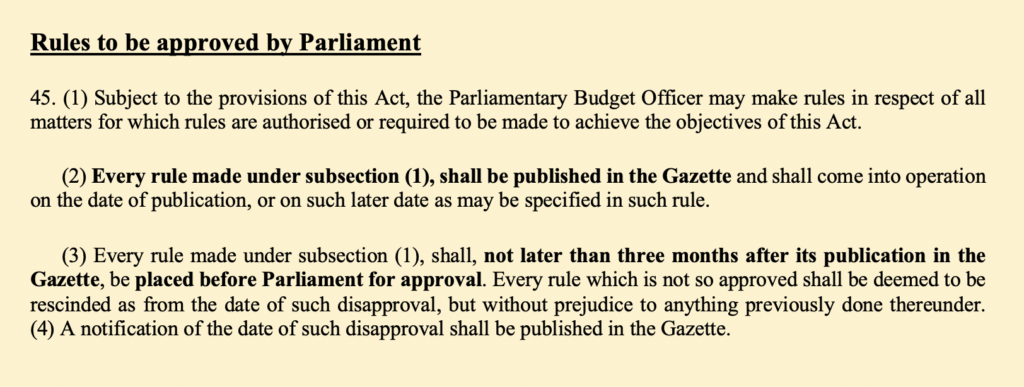
- The PBO may make rules, which has to be gazette & PBO can take upto 3 months after publication to place before Parliament for approval? – what kind of arrangement & wastage of time is this?
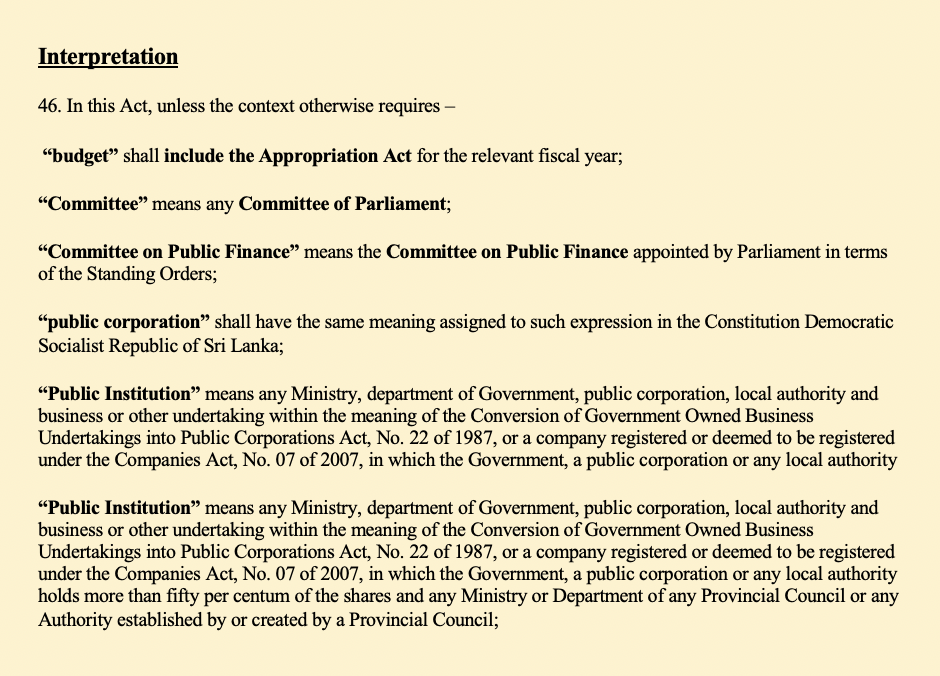
- Again why cannot the Auditor General’s department not take on this role?
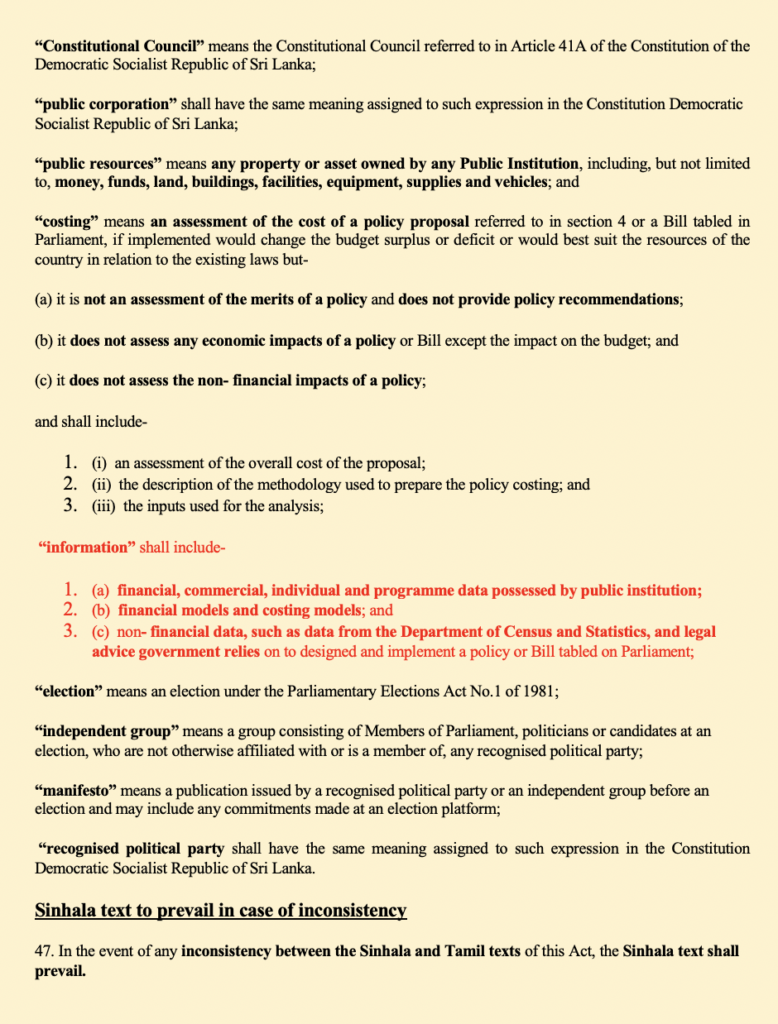
cWhy can’t the Election Commission carry out what PBO is attempting to do via party manifestos?
- With this new office being privy to State information, why are they given immunity?
The Parliament cannot outsource its delegated tasks to a company run by a CEO and with ‘perpetual succession’ – this is violating the constitution and the spirit with which the citizens delegate their powers to elected representatives to function as custodians of the State.
Shenali D Waduge